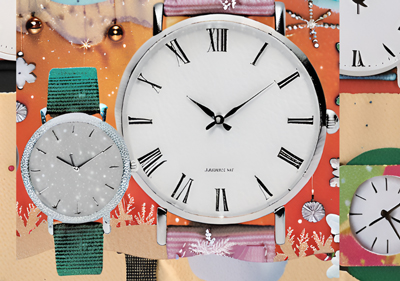Unique or Specific Gifts Won't Please Your Recipient
A look on poor gifting choices resulting from givers trying to find unique and specific gift ideas and how recipients don't value such gifts as you'd expect.
It’s common for people to try to find something fun or unique to give to their recipients. After all, exchanging gifts is all about making people happy and you want them to feel special.
This intuitive choice when it comes to picking gift is the opposite of what a recipient desires in a gift.
Why does this happen? Turns out that there is an inherent mismatch between the expectations of someone who is giving the gift vs. someone who is receiving it.
Givers focus on the moment of the exchange and their recipient’s reaction at the moment when the gift is opened. Recipients, on the other hand, think about the ownership value they’ll get out of a gift.
Essentially, both parties are driven by selfish needs.
Maybe selfish is too strong to describe this behavior. After all, the intention of a giver is to please their recipient. The problem is with the subconscious bias and self centeredness that affects their choice.
Your intention when picking a gift maybe to impress or please the recipient and that doesn’t seem very selfish in nature but the motivation itself affects your choices.
By giving them a unique or fun present you are hoping for a reward. That reward essentially being validating your status as a superior gift giver. A positive reaction from the recipient helps you enhance your self image and feel pleased at your choices.
We’re all social creatures, after all, and crave attention and validation from our peers. That’s natural human behavior.
The problem with this approach though is that it likely won’t match the desires of your recipient. They are driven by selfish desires too.
From a recipient’s perspective they have nothing much to gain from a temporary moment of surprise. The time you spend thinking about and picking a creative, unique gift idea isn’t obvious to them. Research suggests that recipients don’t consider the amount of thought givers put into a gift unless being made to realize it.
For them the “uniqueness” or “thoughtfulness” of the gift don’t provide any direct rewards.
A gift that provides at least some ownership value to the recipient is more pleasing to them than all the creativity put inside a unfeasible gift.
To put it simply, when they first open a present and discover what it is inside they first think about what they can do with it. If your gift adds value to your recipient’s life in some way, they’ll like it.
Unique and Specific Gifts vs. Practical Gifts that Reflect General Interests

Research done on the subject suggests that givers favor giving gifts that are specific and personalized to recipients but are less versatile than what recipients prefer to receive.
Givers tend to tailor their gifts considering the meaning of the gift. They focus on recipients’ stable and unique traits to pick a gift that they consider is most desirable to them.
In contrast, recipients are more aware of their own needs and wants, which frequently change. Because of this givers tend to tailor to their recipients’ traits but are too specific to meet recipients’ varying wants and needs.
A lesson to be learned from these findings is that recipients will always be more aware of their own desires than a giver can anticipate. A very specific gift may seem to you as thoughtful but its chances of hitting off the mark also go up. A general gift that still reflects on your recipient’s interest has more of a likelihood to hit the mark.
Why does this matter?
A gift is not without strings. It’s an exchange more than a altruistic giveaway. When you give a gift to someone you’re putting them in an obligation to return the favor when it’s their time to be a giver.
And, of course, buying gifts costs money. A gift that is not useful to a recipient is essentially “wasting” their money (What they’ll spend on your gift) with no return.
Let’s say you have a friend who is a yoga teacher and you gift them a set of unique yoga themed statues worth $50. Your gift, in this case, doesn’t match your recipient’s needs nor is of much use to them.
Considering they’ll have to match the price tag of the gift when they buy a gift for you that’s $50, their return for the money (the statue set) isn’t worth it for them and hence a bad choice of gift on your part.
A more practical gift such as a good quality, well designed yoga mat carry bag or a yoga themed t-shirt that suits their style will make for a better gift since they’re getting some value out of it.
It’s a good idea to pick a gift that’s more general and of broad use than a very specific or unique but unfeasible gift that’ll not provide much ownership value to your recipient.
Final Thoughts
While your initial instinct might be to pick a unique and highly specific gift for your recipient thinking that the effort will please them, the opposite is true. Recipients are more aware of their wants than you are, and it’s unlikely you’ll accurately figure them out.
A gift that reflects on their more general interests and is also feasible will be more valued by them.














